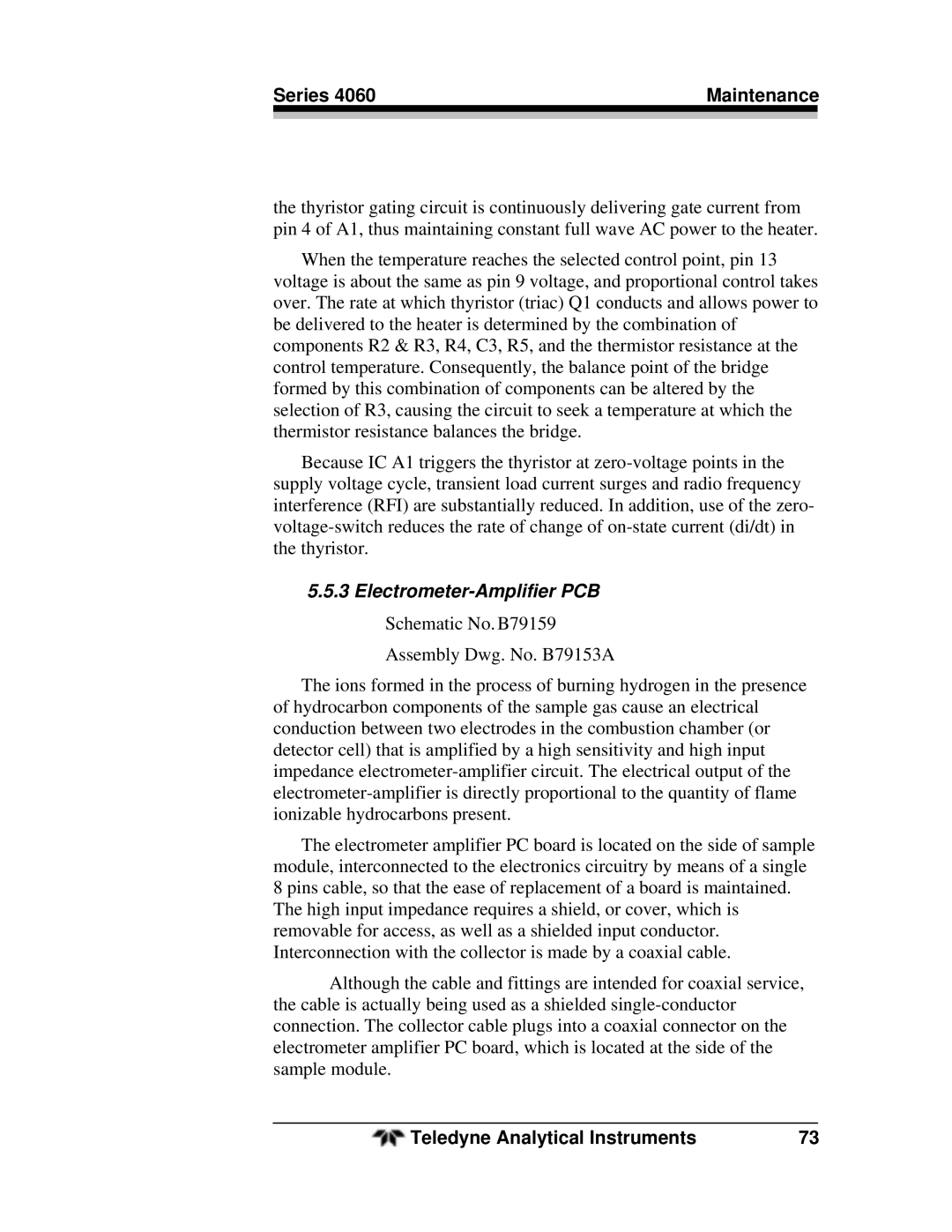Series 4060 | Maintenance | |
|
|
|
the thyristor gating circuit is continuously delivering gate current from pin 4 of A1, thus maintaining constant full wave AC power to the heater.
When the temperature reaches the selected control point, pin 13 voltage is about the same as pin 9 voltage, and proportional control takes over. The rate at which thyristor (triac) Q1 conducts and allows power to be delivered to the heater is determined by the combination of components R2 & R3, R4, C3, R5, and the thermistor resistance at the control temperature. Consequently, the balance point of the bridge formed by this combination of components can be altered by the selection of R3, causing the circuit to seek a temperature at which the thermistor resistance balances the bridge.
Because IC A1 triggers the thyristor at
5.5.3Electrometer-Amplifier PCB
Schematic No. B79159
Assembly Dwg. No. B79153A
The ions formed in the process of burning hydrogen in the presence of hydrocarbon components of the sample gas cause an electrical conduction between two electrodes in the combustion chamber (or detector cell) that is amplified by a high sensitivity and high input impedance
The electrometer amplifier PC board is located on the side of sample module, interconnected to the electronics circuitry by means of a single 8 pins cable, so that the ease of replacement of a board is maintained.
The high input impedance requires a shield, or cover, which is removable for access, as well as a shielded input conductor. Interconnection with the collector is made by a coaxial cable.
Although the cable and fittings are intended for coaxial service, the cable is actually being used as a shielded
Teledyne Analytical Instruments | 73 |
